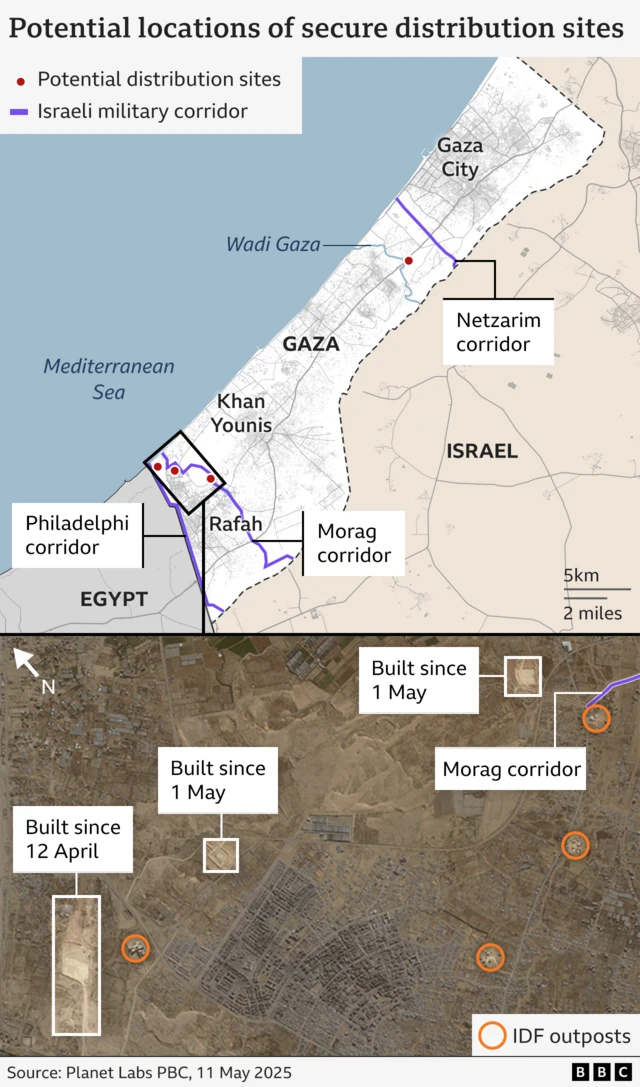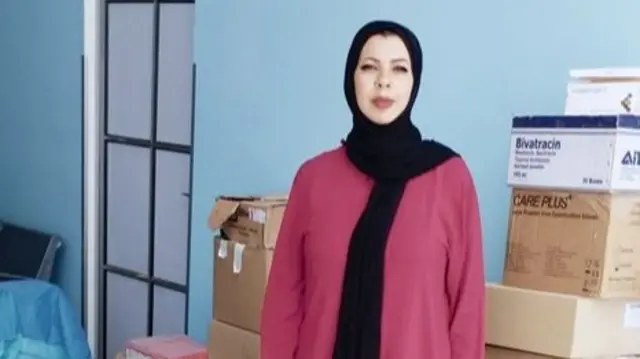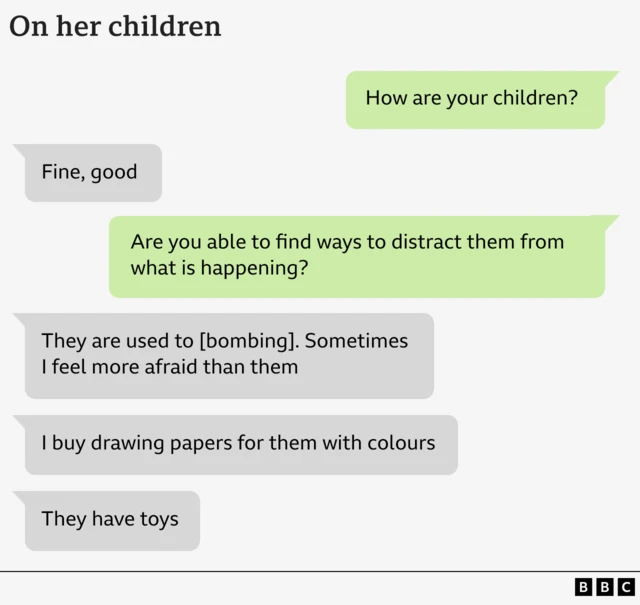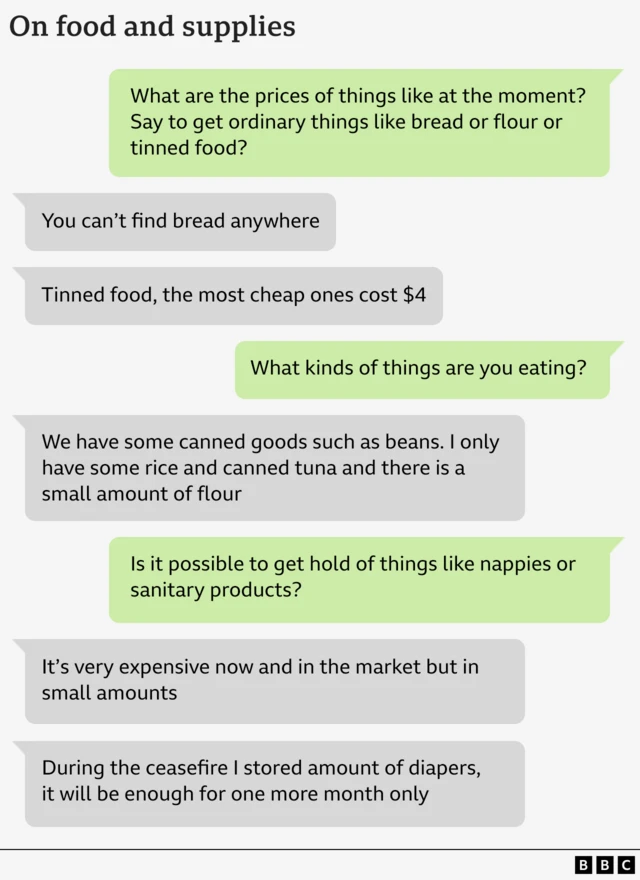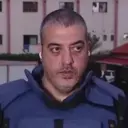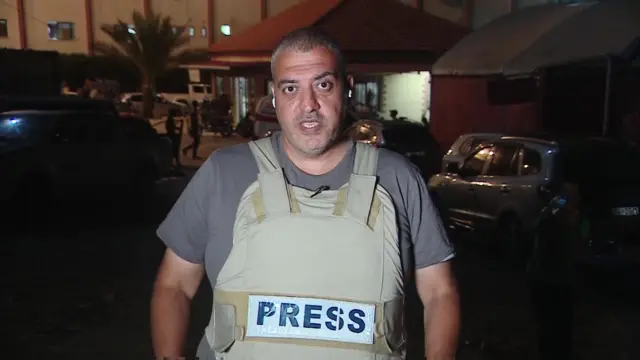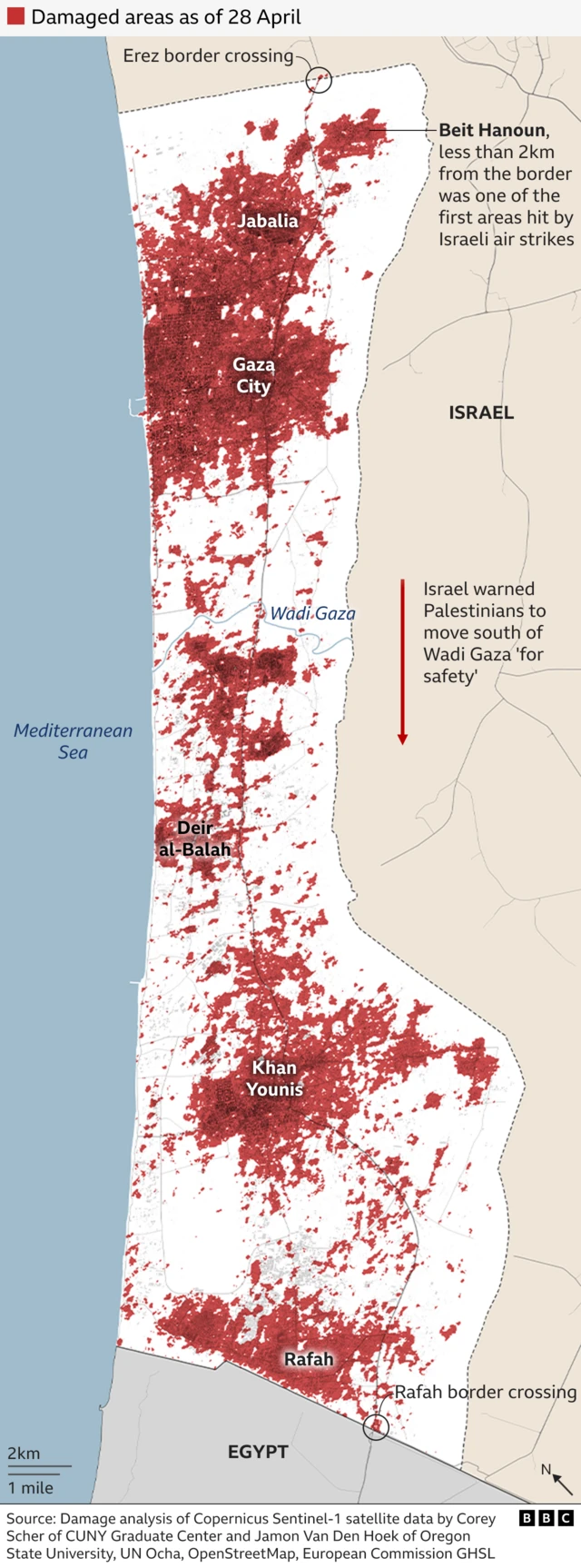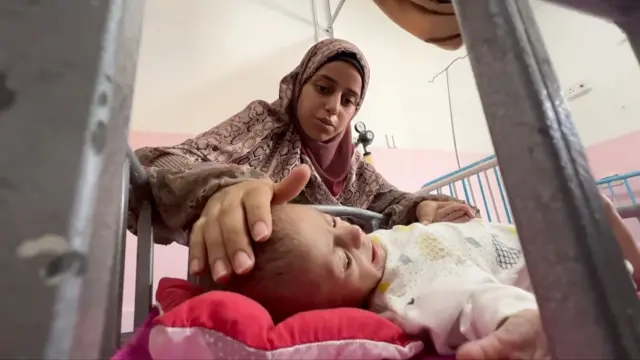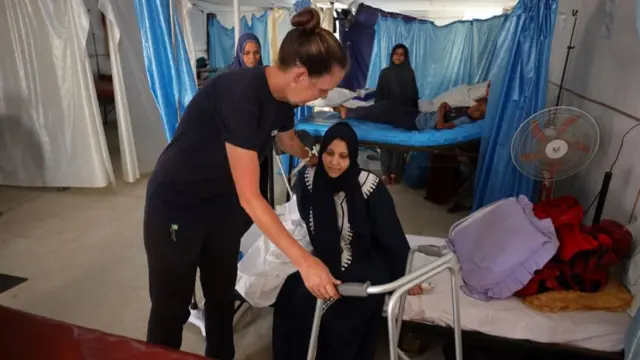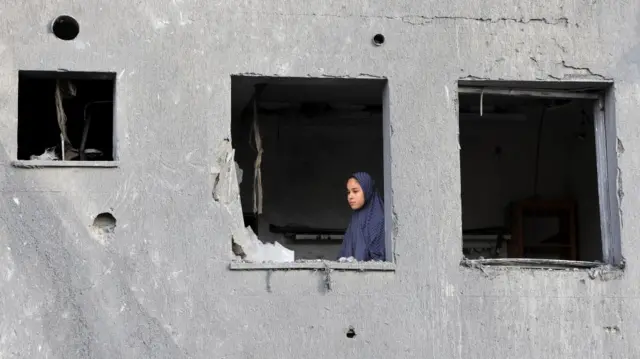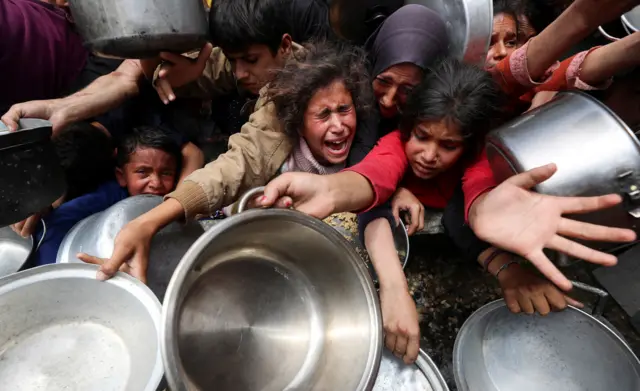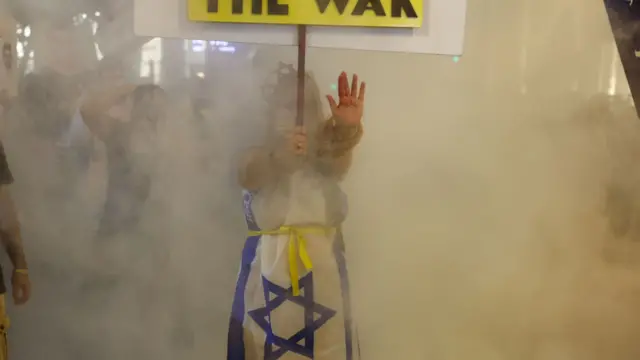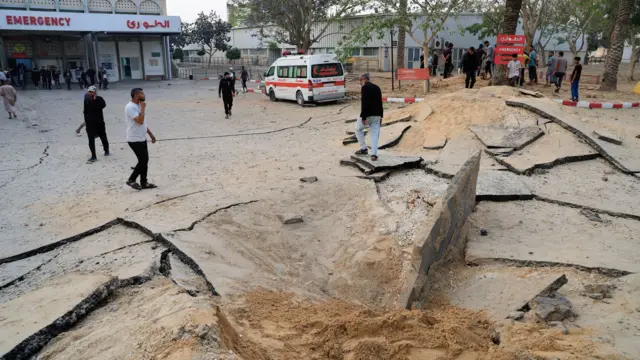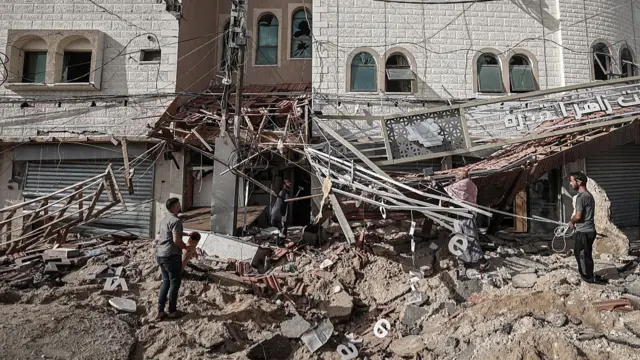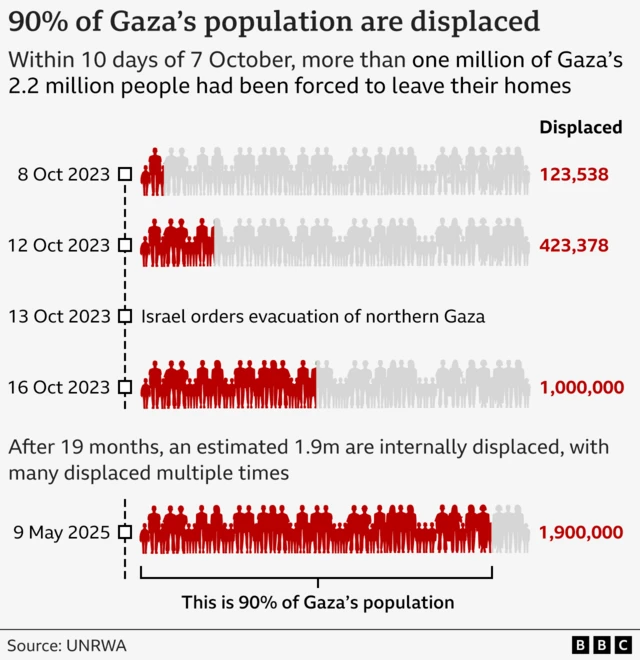All our supplies ran out - it’s a disastrous feeling, says former kitchen volunteerpublished at 13:01 British Summer Time 15 May
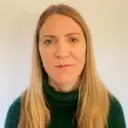 Alice Cuddy
Alice Cuddy
Reporting from Jerusalem
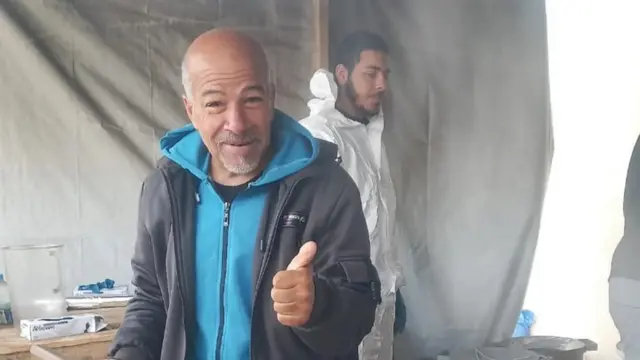
Sami Abu Omar used to volunteer at a food distribution centre
When we first spoke to Sami Abu Omar more than a year ago, he was volunteering at a community kitchen distributing hot meals in southern Gaza.
The kitchen is one of many across Gaza to shut down in recent weeks after running out of supplies.
“At the beginning [of the blockade] we were using food supplies we had in storage but, bit by bit, they started decreasing... About 10 days ago all the supplies ran out - we couldn’t cook anything,” he says by voice note.
“When we closed our kitchen, it was a feeling of sorrow and despair for all of us volunteers."
He says people across Gaza are now living with the “smallest amount of meals we can eat”, saying he has one meal a day.
“We are suffering. There are shortages of all foods - tins, wheat, rice, pasta, oil... Meat? There is no meat at all.”
He left us a voice note this morning following a two-hour journey to a medical clinic that he now volunteers at. He had travelled there by foot because of the lack of transport options and fuel.
He says people coming to the clinic ask for food and water as well as medication.
“It’s a disastrous feeling for people who used to work at kitchens and for all humanitarian aid workers,” he says.

